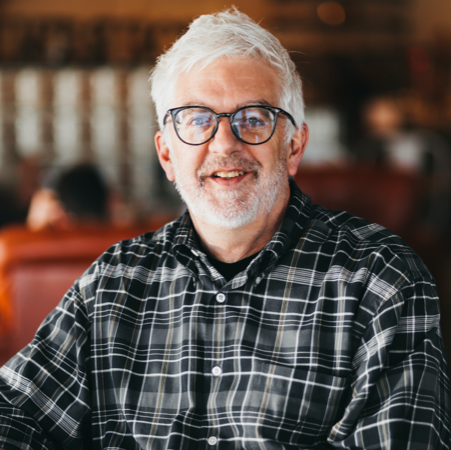
Missiology and Leadership for the Future of the Church and Ministry
Application Deadline: February 20, 2026
Decisions Sent: March 6, 2026
Overview

This Doctor of Global Leadership cohort, beginning Spring 2026, is designed for ministry and organizational leaders who desire to deepen their calling and grow in effective ways of representing Jesus in their cultural context. Students will expand their leadership capacities by drawing on scholarship in the areas of missiology, theology, contextualization, leadership development, and change dynamics, with a foundational emphasis on Trinitarian missiology and Missio Dei.
Throughout the program, students will engage in an individualized research project with the goal of seeing new developments or concrete changes in their ministry. As a community of practitioners, students will journey together to provide mutual support and sharpening. Attention will be given to self-awareness of leadership, personal spiritual formation, and discipling others in an integrated way.
The first three years of study focus on specific developmental domains: the development of a missional ethos (year 1), the development of cultural intelligence (year 2), and the development of leaders (year 3). In the final year, students will integrate these domains by making holistic applications in their ministry context and contributing to the broader field of missiology. Their work will culminate in a contextualized applied research dissertation. The diagram below illustrates the key research and writing components of each year.

Schedule
YEAR 1: MISSIOLOGY (14 units)
Spring (Mar–Jun) 2026: 4 units, online
Summer (July–Aug) 2026: 4 units, hybrid, in-person intensive July 27-31, 2026, Pasadena, CA
Fall (Sep–Dec) 2026: 6 units, online
The focus of year 1 is on key theological frameworks within the multidisciplinary field of missiology. Course material will move through a broad range of topics including a Trinitarian theology of mission, Missio Dei frameworks, missional reading of scripture, culture and contextualization, and the formational dimensions of participating in God’s mission. After a broad survey of the literature, students will design their unique course of study to explore missiological issues relevant to their ministries. Students will become familiar with the overall dissertation outline, library research, and academic writing, and will be prepared to engage in precedent research on their topic. By the end of year one, students will have an in-depth knowledge of the literature associated with their lines of inquiry and will have highlighted gaps in the field that require further study. The conceptual frameworks developed in the literature review provide the foundation upon which students design and conduct field research in year 2.
Year 2: Contextualization (14 UNITS)
Spring (Mar–Jun) 2027: 4 units, online
Summer (July–Aug) 2027: 4 units, online intensive (Zoom), July 2027
Fall (Sep–Dec) 2027: 6 units, online
The focus of year 2 is on models of contextualization and issues of context. Building on theoretical frameworks developed in the literature review, students will become equipped with the tools they need to study the cultural dynamics impacting their area of focus. They will be introduced to a variety of approaches (e.g., ethnography, case study, grounded theory, etc.) and methods (e.g., interviews, surveys, focus groups, participant observation, etc.) common to missiological research. Students will then begin to collect and analyze the data, which will give them a better understanding of their ministry context, inform their application project, and lead to generalizable findings that contribute to the broader field of missiology.
Year 3: Leadership (14 UNITS)
Spring (Mar–Jun) 2028: 4 units, online
Summer (July–Aug) 2028: 4 units, hybrid, in-person intensive July 2028, Pasadena, CA
Fall (Sep–Dec) 2028: 6 units, online
The focus of year 3 is on understanding the nature of leadership as it impacts the missiological response to the student’s research findings. Attention will be given to the self-awareness of personal leadership and how it shapes missional success and direction. Students will draw conclusions from these findings that will inform their personal and organizational leadership capacities in need of further development. Their conclusions will also serve as a guide for further studies in the leadership literature, which may include aspects of leadership development, education/training/discipleship, organizational dynamics, and change management.
Year 4: Integration (12 UNITS)
Spring (Mar–Jun) 2029: 4 units, online intensive (Zoom)
Summer (July–Aug) 2029: 4 units, online
Fall (Sep–Dec) 2029: 4 units, online
Guided by the frameworks from years 1, 2, and 3, students will integrate the domains of missiology, contextualization, and leadership into a final, published dissertation. In addition to the literature review, findings, and conclusions chapters written in previous modules, they will develop an implementation plan to be written up in the application chapter of their dissertation. Students will then revise, defend, and publish their work as a means of sharing what they’ve learned with their ministry partners and the broader missiological community.
Cohort Mentors

Rowland Smith lives with his wife in Colorado Springs, CO. In addition to teaching courses at Fuller, Rowland is the National Director for Forge America Mission Training Network, Director of The Pando Collective (a micro-church network in Colorado), and holds a staff position at Pulpit Rock Church in Colorado Springs. He is the author of Life Out Loud: Joining Jesus Outside the Walls of the Church, and is the creator and curator of Red Skies: 10 Essential Conversations Exploring our Future as the Church.

Amber Smith has mobilized the church for mission for two decades by bringing together theology, education, spiritual formation, and leadership development to see new ministries emerge. Her ministry roles have included teaching, developing theological curriculum, and launching new training programs in Christian education and local congregations. Before joining Fuller as affiliate faculty, she served as Global Director for Reality Carpinteria, where she led a multisite ministry team to develop leaders, prepare and send cross-cultural workers, and educate the church on least-reached frontiers. Dr. Smith and her husband enjoy traveling and fostering intercultural friendships in the majority world. She resides in Ventura, California.
Learn More and Connect with an Admissions Counselor
Contact
Chat with an Admissions representative
Office Hours
Monday – Friday
8 am – 5 pm (Pacific Time)
To view in-person welcome center hours for Pasadena, Arizona and Houston, click here.
